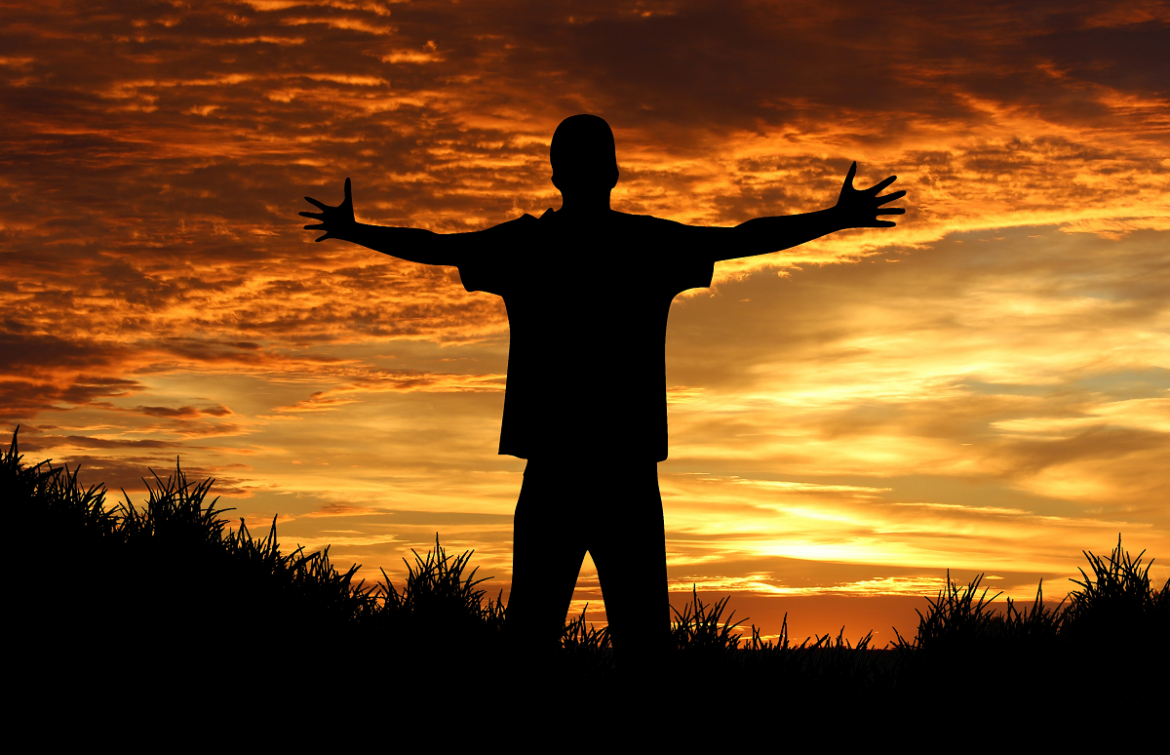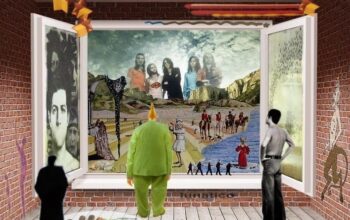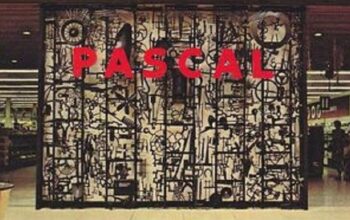Coldplay – Everyday Life (2019)
Contemporaries are not final judges,
Arnold SchönBerg, Style and Idea (1941)
but are generally overruled by history
I don’t know how, after all, I’m going to remember 2020. For reasons I won’t air out here, I may well count it as one of the greatest years I ever lived.
I’ve noticed a pattern: bad things seem to fall reliably from my memory, while good things have meekly hidden themselves, and then inherited my earth. It’s one of those wonders that I never question, but which surprises and delights me every time it comes.
I’ve also learned that the years that I complained about the most while they were happening are the ones that I’ve remembered the best.
I took a decision six months ago that I was going to let music and song tell me how to live, love and behave. It’s not as airy-fairy as it sounds. Spirituality is a very pedestrian exercise for me. If you can recognize what makes you happy and sad and mad and glad, you’re in good shape. Most people can’t. If you can then actually express it, then you’re really off to the races: you’ll understand and be understood in the company of your fellows, and, let’s face it, the lack of that is what really frigs us up. Well, music – and its framework, The Song – tell me all those true stories about you and me, and then those stories make me search for the things I think I can learn to become a wiser servant. Then I write about them, bilingually, in English and Notes.
So here, I’m going to let a song describe how I’ve processed this past year. I’m guessing it will be instructive, pace Arnold Schönberg, for me to read this back to myself many futures from now to let the Overruler do his thing.
What in the world are we going to do?
Look at what everybody’s going through
Globally, we’ve seen scarier situations within our own lifetimes and within those of all of our living generations.
The oldest among us can still relay vivid stories about the apocalypse of WWII and its incalculable cost and the terror of the Cuban Missile Crisis and the frosty game of brinksmanship that it started. We’ve since watched wars, terrorist attacks and genocides play out on news networks and online touchpoints like they were sports events. More recently we’ve seen pandemic threats from SARS, West Nile, Norwalk, H1N1, Ebola, and all of their mutations, with a promise of more to come as the planet bakes in its fossil-fueled oven.
But even where these events have rippled over borders, many have been human-authored and few have threatened everyone indiscriminately. None required a fully collaborative global effort to remedy them.
COVID-19 has.
Our lesser leaders (and their followers) have called it ‘a war’ – as if viruses, simply looking for places to live, are targeting us with a dark, scripted purpose. Faced with bluntly-calculated choices between allowing people to suffer and letting businesses and careers do same, governments and citizens alike have tried to weigh and counterweigh the values of life, wealth and dreams. Our feeblest minds have somehow folded ‘Freedom’ into the discussion, as if our preparedness to let people die is itself some divine right.
A virus doesn’t care who gets it. We’re all its promised land. Any Turk, Briton or Laotian will do. Everyone is equally imperiled by it, no matter their flag. Calling it a ‘Chinavirus’ or congratulating oneself for containing it within one’s borders is all at once like blaming Gilligan for your coconut-based diet and then thanking God that the hole wasn’t in your side of the boat.
No one did this. It’s just happening, and it’s happening to all of us. That teenager that died in Sweden could be anyone’s maskless friend and that fitness centre that went out of business in Texas last month could be your father’s venerable haberdashery.
Our smartest and most qualified experts are doing their level best. And they’re learning in public. How easy would your job be if every assessment you made had cold, freely-available metrics attached to it and seven billion people were weighing in on your performance on an hourly basis? Naturally, their findings are changing in real time, and the worth of their advice is only as good as our willingness to follow it. And too often, we don’t. In fact, whole segments don’t even believe the pandemic is happening at all, or are convinced that there are political agendae hiding between the lines, or don’t trust science writ large for some other unrelated reasons (the climate change ‘hoax’), or simply don’t give the square root of a hoot who gets sick and dies.
This fix is going to require borderless collaboration from the grassroots up, the very skill that humankind, in these populist days, is calibrated to utterly suck at.
Looking beyond this crisis to future challenges and lessons learned… what exactly in the world are we going to do?
What kind of world do you want it to be?
Am I the future or the history?
Each of us has grown up with certain tenets. At the nexus of the Boomer and GenX litters, my cohort set hard boundaries around familiar tropes of democracy, freedom, capitalism and education, but also championed some of the more progressive instruments of multiculturalism, social programs, globalization, inclusivity and social justice.
Over the past couple of years we’ve seen each of these tentpoles get bent and broken to one degree or another. So is this the part where we do what our forebears did all those years ago and scream and rant that it’s all going to hell?
It’s been nearly 60 years since a generational chasm anywhere near this wide has opened up between one demographic and its adjacent. It’s fair to wonder out loud if we’re living through the booming echo of that busted time. Curmudgeons everywhere shake in fear that the world our children are crafting for themselves will be unrecognizable from the one they were so ‘lovingly handed’. And then sages everywhere understand that whatever world they craft for themselves is entirely theirs and theirs alone.
Let’s think of our parents’ generation and how ‘yesterday’ we thought of them, then and still. I’m still trying to figure out how I feel about that.
Everyone hurts, everyone cries, everyone tells each other all kinds of lies
I watched The Social Dilemma on Netflix recently. I’m always suspicious of disgruntled former staffers who throw shade at erstwhile employers, but this particular FUD may be well placed.
Anger management, it seems, has become all about agents in high-leverage positions managing everyone else’s anger at each other by remote control. It’s become the post-modern flavour of Divide And Conquer.
The formula goes like this: find an issue that’s so divisive along demographic lines that, given a false choice of one fix or another, more than half of a large sample size will support one of those choices. Then study that resulting segment, hard: are there any other other issues, related or not, that they find themselves on a certain side of? Correlation without causation is just fine. If there are, then throw those issues into the bowl. If that segment doesn’t shrink too much after having been challenged with a similar set of false ‘this-or-that’ choices, then you’re onto something huge. Those choices can focus on things like immigration, wealth distribution, law enforcement and taxation, or even empirical sciences that would otherwise inform and educate our citizenry at large and set public policy.
Once you find the coveted faultline, populism becomes easy. Make the agitated side think ‘the others’ are trying to persuade them with lies for the purpose of… whatever you want their support for. A plebiscite, a grassroots movement, an election campaign. Or something grim.
Polarization is old news. Fake news is also old news. What’s new news is how easy it is to create and distribute the second to effect the first. And in a real-time world of citizens with the attention span of a tsetse fly, it doesn’t take much to meme, forward or retweet someone into a dark state of mind.
Back to The Social Dilemma. One of the guest narrators role-plays that gentler side, and asks, rhetorically, on its behalf ” ‘What’s wrong with these people? Aren’t they seeing the same reality we are?’ “, and then ironically answers “No. They’re not”. And of course, that’s a central message here: Social Media platforms, themselves interested partners in binary political outcomes, allow one set of ‘facts’ to be published to one segment while delivering opposing ‘alt-facts’ to another.
With no authoritative source of truth, and with heretofore ‘trusted’ media accused of conspiracy, everyone now becomes a liar and seer at the same time. We’re left to ourselves, redeemed by some perverted entitlement to ‘Freedom’ (there’s that word again) to create our own truth and impugn the ‘liars’, who, it turns out, can be our ideological enemies or bff’s.
If we do figure out what in the world we’re going to do, first we need to agree the facts.
Everyone falls, everybody dreams and doubts
Got to keep dancing when the lights go out
Setting aside for the moment all the death and infection and lingering illness wrought by the outbreak, the collateral economic damage has been heartbreaking in its own right. Those who have spent years, even lifetimes, building careers and businesses have watched helplessly as their shops were shuttered in painful slow motion. Countless others employed by those businesses received their furlough, layoff and termination notices.
Those weren’t just paycheques: they were peoples’ identities, their life’s work, their legacies-in-the-making, their future security, their dreams. Now they’re just doubts.
It’s not that full shutdowns were wrong policy decisions. Amputating limbs to save lives makes for important discussion. But the terrible cost can’t be ignored, and it’s not just monetary. How does a felled business-owner carry on with an enjoyable life and nurture their family, friend, community and professional relationships when the centrepiece of their daily regimen is gone, possibly for good? How clearly can they see the prospects of recovery while those lights are out, now and for some unknown period beyond?
How in the world I am going to see you as my brother, not my enemy?
The rise of angry populism in many places – save for a few progressive locales – has shone a garish light not only on what people really think. And it’s brought out a lot of behaviours that we hoped had been consigned to our ancestors’ darker histories.
No such. Over and again, some of the world’s brashest leaders have lit a way down the sewer tunnel. In the US, a blithe response to pussy-grabbing boasts was one point of inflection; Charlottesville was another; too, George Floyd’s death and its aftermath. In the UK, separatism became the preferred state for a citizenry that simmered in resentment. Eastward, Hungary, Poland and Turkey took hard nationalist and/or authoritarian turns. There have been many other examples, events and outcomes before, after and inbetween.
On the ground, anti-maskers – some with firearms – demonstrated in front of legislatures, demanding that shutdowns and social distancing orders be lifted in the name of ‘Freedom’ (that’s three, now). People die; as the Disney adaptation goes, It’s a Darwin World After All.
Many shook (and threw) fists, glared angrily at neighbours and family, uttered and sometimes discharged threats, posted and tweeted things so vile you’d wonder if the beasts of the field somehow figured out how to text with their claws and hoofs.
And ‘The Truth’, whatever that even is anymore, became elusive and homeless. The Fourth Estate, once the last line of defense of a free citizenry, became ‘MSM’, the bête noir of our free thought. Black was white; up was down; Oates was clean-shaven, Hall had the moustache.
Nothing, nothing, was what we thought it was. Including each other.
Everyone hurts, everyone cries, everyone sees the color in each other’s eyes
“It’s hard to hate up close.”
Isn’t it. That’s largely why progressivism seems to flourish in cities and densely populated areas. Once we see each other en plein visage, hear the tone of voice, see the body language and feel its energy, and look thoughtfully into one another’s eyes, we’re disarmed and our suspicions evanesce. Whether it’s because people genuinely want to get each other or because we’re just so terrified of confrontation, it seems we’re always our most civil and St.-Francis-like when we’re up close and personal. It’s just not certain that we all want to get that close.
From behind the tempered glass of a rolled-up car window we’ll thoughtlessly flip someone off, clench a fist, mouth obscenities and even pull some dangerous maneuvers to teach another motorist a lesson after they’ve cut us off on the boulevard. Could you imagine that same interaction after one shopping cart abruptly pulls in front of another in a supermarket aisle?
Everyone loves, everybody gets their hearts ripped out
Hold tight for everyday life
Ultimately, I just want the same thing I suppose everyone else wants: to love the people in my life and be loved back, and that pretty much always goes really well for me.
In stress and uncertainty, in isolation and loneliness, I’ve not always been at my best. I can’t say how many times I’ve annoyed, infuriated or even hurt someone in the past year, even people I care most about. It’s a non-zero number, I can be sure of that.
That’s not a 2020 thing, but this year more than any other has tested my kindness and quieted my better angels, just as it has those of others in return. And I haven’t been nearly as affected by the ordeal as so many others have. I’ve just complained more. I’m embarrassed and ashamed of a thing or two that I’ve said and done to some people who deserved better. I’ve been horrified and heartbroken listening to a few people I’ve known and cherished all my life husband abominable viewpoints on moral issues and principles that I can never let go of. It’s easy to excuse or at least explain our missteps by the times that we live in, but that can only withdraw so much capital. At a certain point, I need to both be better and expect better.
We’re all jonesing for an end to this plague, and it’s coming. When everyday life resumes, at least closer to what we’d known before, it might not feel the same, perhaps ever again.
At first light, throw my arms out open wide
Hallelujah
When the lights come on again and the weary dancers see the colour in each others’ pinhole-pupiled eyes, it’ll be a time to breathe out.
We’ll start the healing process that blurs the lines between those who acted selflessly and bravely and those who chose a different way. We’ll remember the many lives that can’t be here to share the moment, and – hopefully – be grateful and more loving toward the luckier ones who can.
Hallelujah.



